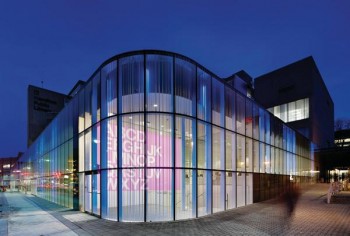The Importance of the Project Manager in the Construction Process [updated]
— 18 Jul 2019 09:15:05 by Declan O'Riordan

The Need for a Project Manager in Construction
The need for skilled Project Managers in construction cannot be denied – recent statistics show that for every 1 billion invested in construction 122 million was wasted due to lacking project performance! Project Managers are vital to keep projects on track, use budgets effectively and ensure jobs are completed correctly.
Why is the Project Manager so important?
Put simply, the Project Manager is responsible for the success of a construction project. They oversee every aspect, including the planning, execution, monitoring, control and closure. Project Managers ensure that timeframe targets and budgets are met. Additionally, it is critical that a good client relationship is maintained throughout the project.
Project Management in Modern Construction
Modern construction is daunting place for the majority of clients. Complex terminology, red tape and needless expenses are endemic in the industry today. Even in the pre-construction phase there are many challenges facing the client.
Project management can also provide clear lines of accountability. With a construction management team in place, there is little confusion about who is the decision maker or what the project objectives are. The construction manager directs the focus of the overall project team so that all understand what they are supposed to be doing and why. The construction manager’s global view of the project enables agile management of evolving risks as they occur.
Are you looking for a Project Manager? Get in touch to discuss your project today.
A Recent Project Example
Recently a prospective client asked us: “Why do we need a project manager, and what can you do for me that the team of project consultants I’ve already assembled cannot? Surely the architect and contractor run the job?” The client in question had made a great start and appointed a strong project team, a high-profile architect, a structural engineer, a Mechanical and Electrical consultant, a landscape architect, and an interior designer.
When asked the above question or similar, our answer is always the same: “although you have recruited an impressive group of soloists, you still need someone to conduct the orchestra”.
We are always amazed in this age of email, Skype and instant messaging, how challenging effective team communication can be. A project manager acts as a 'conduit', easing the flow of information and ensuring the right people are have input where requirement preventing costly mistakes and delays.
View some of our recent construction projects
What is a “Project Manager”?
The client mentioned above assumed that the combined input of his architect and other consultants would more than adequately address any issues that might arise during the design stage of the project. However, even the most commercially astute architect can often be blind to alternatives and more financially responsible solutions to design issues. Also, and with the best will in the world, project participants cannot objectively assess their own performance or independently manage the activities of other members of the same project team.
Meet the Project manager; who, although sympathetic to the objectives of the various individual project stakeholders, will first and foremost protect the client’s interests, in effect a clients representative. Free from any potential conflicts, performing an independent co-ordination role to ensure that all members of the project team are working towards a common goal.
Such an individual needs to be totally comfortable with the language and vocabulary of design, and be capable of leading the creative process, but also needs to be completely at home in a construction environment. In addition, the project manager should be able to ‘translate’ the objectives of the design team to the contractors, and vice versa, whilst mediating any conflicts that might occur between the two sides.
The Project Manager and the Clients Vision
The project manager should maintain an independent overview of the detailed design development process and ensure that the project does not deviate from the client's vision. He (or she) should provide creative and strategic input throughout the project process – whilst maintaining an appropriate degree of detachment – and integrate the works of the various specialist consultants; which does not ordinarily happen, un-aided, by itself.
Some benefits of appointing a Project Manager
The early appointment of a project manager has a number of major benefits:-
- Pre-construction management efficiencies will save you time and money.
- The value engineering process and the allocation of the project budget in the most effective way will be co-ordinated by an unbiased and experienced professional.
- Any necessary additional specialist consultants that should be brought onto the project team will be identified and appointed in a timely manner, thereby minimising costly “afterthoughts”.
- The burden of the project development and delivery process can be removed from the client’s shoulders – thereby enabling the client to pursue other opportunities.
- And, most importantly, potentially expensive mistakes can be avoided.
Appointing a Project Manager
Appointing a project manager benefits construction projects by increasing the potential for successful project completion - ON TIME, ON BUDGET, and FREE of FINANCIAL or LEGAL COMPLICATIONS.The appointment of a project manager should not increase overall project costs. Instead, significant financial and time savings are possible through focused and efficient processes. Therefore a project manager can be somewhat self-financing.
Read more about our project management services or Contact us for free impartial advice about your project.